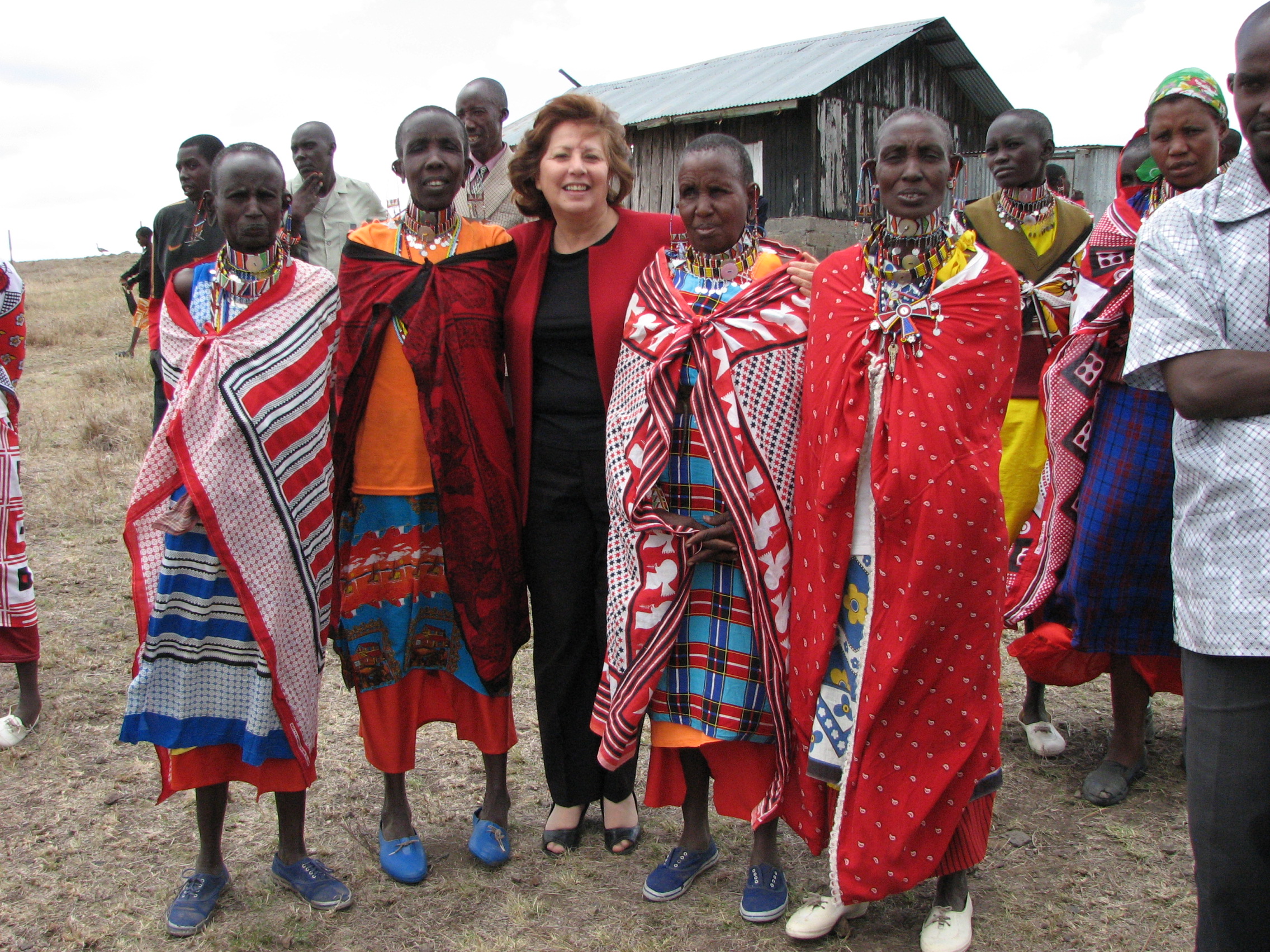SDA Church begins HIV/AIDS intervention program among the Maasai people in Kenya
November 2007 - Johannesburg .... [AAIM Staff]
Many years before they were called to initiate and develop the Seventh-day Adventist Church’s response to the challenge of HIV and AIDS in Africa, Drs. Oscar and Eugenia Giordano were privileged to meet with Soiyet Koisaba in her traditional Maasai home in Ongata Rongai, a village outside Nairobi Kenya.
|
||
That meeting took place in 1992 when the Giordanos, while on a visit to Maxwell Adventist Academy went with a group of Academy staff, led by Gwen Edwards, on a mission to bring the good news of the gospel to the Academy’s next door neighbours. The neighbours lived in a small traditional Maasai village adjacent to the academy. Two years later in 1994 the Giordanos were privileged to be back at Maxwell Academy when Soiyet together with a number of other people from her village became the first members of the Maasai tribe to be baptised at the academy. Some time after that the Maasai people including Soiyet relocated to the village of Kajiado near the Tanzanian border.
In January 2004 the Giordanos opened the Adventist AIDS International Ministry (AAIM) office in Johannesburg, South Africa. They initiated and developed a comprehensive program that addresses the many challenges of HIV and AIDS, by encouraging every church to become an HIV/AIDS Support Centre for the Community – bringing Hope and Healing to those infected and/or affected by HIV and AIDS. In the three and a half years since starting the AAIM initiative the Giordanos have extended the program to 16 African and Indian Ocean countries, establishing many support centres, community programs to help care for the thousands of AIDS orphans, income generating projects for women affected by AIDS and voluntary counselling and testing (VCT) centres.
Several AAIM projects have already been started in and around Nairobi and in a program to extend the concept to many more churches in that country, the Giordanos conducted a training seminar for 137 participants at the Ongata Rongai SDA church during May 2007. They noted that the Maasai village no longer existed but they were excited to enrol Soiyet Koisaba and 9 more Maasai, two of whom were infected by HIV, as seminar participants.
The team of Maasai participants were brought to the training program by Solomon Lenana who, in a voluntary capacity, fills the role of pastor. Solomon said that AIDS was of great concern to the Maasai people who, like many in Africa, were being ravaged by the pandemic. He said that there were approximately 600 Maasai SDA members in his territory but that this was the first ever church based HIV/AIDS support or intervention initiative among the these people.
Many Maasai people continue to live a very traditional life, living in arid parts of the country where water is scarce, fruit and vegetables are almost unheard of and their diet consists almost exclusively of milk which they drink at least three times a day.
The Maasai delegates proved to be very enthusiastic seminar participants recognising specific cultural challenges that they faced, such as the very sensitive issue of female circumcision which is still broadly practiced amongst many Maasai. During the seminar the participants developed a culturally sensitive HIV/AIDS intervention project, designed to meet the specific requirements of their people. They then presented their action plan to all the other seminar participants.
The Maasai participants were so pleased with the knowledge that they had gained and their new-found ability to make a difference in their communities that invested on Drs. Oscar and Eugenia honorary Maasai names. Eugenia was given the name Naipota which means ‘full of knowledge’ and Oscar was given the name Saruni which means “the one who came to help us’.
Projects such as these are extending Jesus’ method of offering hope to the hopeless, food to the hungry, love and support to the lonely, to many of those in the world who are most in need of this.
Last month of November 2007 this group of Maasai received funds and materials to start their projects.

